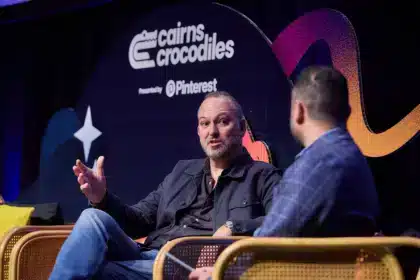Last week, Seven was found liable to pay worker’s compensation to former House Rules contestant Nicole Prince.
Prince, who was a contestant on the show in 2017, took the network to court over claims she suffered psychological trauma as a result of being on the reality show.
After multiple claims were denied, Prince eventually succeeded after arbitrator Cameron Burge rejected Seven’s argument that no service was provided by her and her partner on the show, which the network said meant she wasn’t liable for worker’s compensation.
He said: “The respondent derived benefit from the applicant giving her time and engaging in the home renovations for the television show.
“Without the contestants, the production would not take place.”
Burge ruled Seven’s relationship with Prince was “appropriately categorised as that of employee and employer”.
The landmark ruling has sent ripples throughout the TV industry as a case like this has never been won before, and it now sets a precedent for similar claims to be brought forward.
Reality TV contestants – are they all employees?
Faculty of law professor at the University of Technology Sydney, Joellen Riley Munton, told B&T she wasn’t surprised Prince was awarded worker’s compensation based on the fact she presented a very convincing argument based on the definition of an employee under Australian law.
She said an employer and employee relationship is based on two things: remuneration and the level of control.
“In Australia, the definition of Australian law focuses on looking at all the aspects of the relationship, but particularly the level of control the person who engaged the other person has over [their actions],” said Munton.
She said in the House Rules case, it was easy to demonstrate Prince was performing work considering she and her partner were renovating a house.
“With that kind of a reality show where someone’s taken out of their normal life and put into a new job for a period of time, it’s easy to establish that you have a working for remuneration relationship.”
Munton also said there was clear evidence that showed the producers of House Rules had significant control over Prince, which she said was a “crucial” aspect in the case.
“Any reality show that actually takes somebody completely out of their other life, and puts them in a situation where they’re being told what to do, that’s control and that’s an employee and employer relationship,” said Munton.
Arguably, most of the reality TV shows across Seven, Nine and 10 take contestants out of their everyday life and exert a substantial level of control over their actions on the shows.
Signing a contract isn’t the end of the story
What was also interesting in the case was the fact Prince’s contract with Seven explicitly claimed there was no employment relationship.
The contract read: “You acknowledge that your participation in the program is not employment, does not create an employer/employee relationship between Seven and you and is not subject to any award or collective bargaining or workplace agreement and does not entitle you to any wages, salary, corporate benefits, superannuation, workers compensation benefits or any other compensation.”
In this US, the courts will look at a contract and accept it on face value. However, in UK and Australian law, signing a contract is “not the end of the story”, according to Munton.
She said: “It would be too easy for employers to simply get everyone to sign a contract saying, ‘I’m not your employee’.
Munton said in Australian law, it’s more important how the relationship actually plays out in real life, rather than what’s stipulated on a piece of paper.
“You can’t contract out of things like worker’s compensation, minimum wages, entitlements, holidays breaks and so, in Australia.”
New house rules: will there be a tidal wave of similar claims brought forward?
The House Rules case was not only monumental in and of itself, but it also sets the foundation for similar cases to come out of the woodwork.
And, while Munton believes we will be seeing more cases and claims similar to Prince’s, she doesn’t believe they will necessarily succeed.
“There are two elements here you have to demonstrate. One, that your particular kind of contract makes you an employee. You also have to demonstrate that you’ve had significant illness as a result of being on the show. It’s got to be more than just, ‘I’m really pissed off’. I’m really pissed off doesn’t cut it.
“This particular candidate [Prince] was able to demonstrate she had medical treatment and that she wasn’t able to get other work as a result of her time on House Rules.”
Munton believes, however, based on Prince’s success, there will be more law firms willing to take on similar cases. In the past, Munton said winning such a case would be too remote a chance for most lawyers to take on. That’s no longer the case.
“Lawyers might now say, ‘Oh, actually, that’s quite a strong precedent’,” said Munton.
She also believes that as soon as lawyers start taking on worker’s compensation claims similar to Prince’s, they may very well start to investigate other avenues at the same time, such as defamation.
“One of the things that the US has been successful in is tort cases based on intentional infliction of emotional distress,” said Munton. “That’s a very unusual claim in Australia to succeed, but if you think you’re going succeed on the work compensation side anyway, [lawyers] might also test the waters for those kinds of claims.”
“Because this particular case has been so widely publicised, and a lot of people seem to have come out of the woodworks claiming that they’ve suffered similarly, you might get enough law firms with an interest in testing the margins.
“Once you take a client on, you look at all the circumstances and all the potential claims that you might make for that person. So it’s very possible we will see more of these cases.”
Former reality TV stars air their grievances
Following on from Prince’s worker’s compensation success, it isn’t unreasonable for the networks to be concerned over the potential for further claims.
Just last Friday, multiple disgruntled former reality TV contestants spoke on the Kyle & Jackie O Show and aired their anger at producers on some of Australia’s most popular shows over their “manipulative” behaviour.
Several reality stars claimed on-air they were forced to say things they didn’t mean and were often “stitched up” in the final edit.
Nine’s Married At First Sight contestant Davina Rankin who was on the show in 2018 and has aired her frustrations about her time on the show multiple times said she was “coached” into giving the producers what they wanted.
She said the show’s producers encouraged her affair with Dean Wells and told them it would be a “recoupling” because they were both unhappy in their original pairings.
Until the show actually aired, Rankin and Wells had no idea they’d been edited to “look horrible”.
She said: “There were billboards of me in my wedding dress up in Brisbane [with the words] ‘Australia’s most hated woman'”.
Former 2017 House Rules contestant Bec Herning also spoke to Kyle and Jackie O about her reality TV experience, claiming the way she was portrayed on the show was “disgusting” and accused the producers of fabricating her storyline.
She said: “They keep you up 24 hours a day, put you in positions and force you to say everything.”
10’s Bachelor in Paradise contestant Bill Goldsmith also called in to share his experience of being painted as a TV “villain”.
Goldsmith said: “You have to take responsibility for the things you say, but they are very sneaky in the way that they edit it, the way they manipulate you into doing things.”
The future of reality TV – should the networks be worried?
Safe to say, Prince’s landmark ruling will no doubt have far-reaching implications for the future of reality TV.
While it can be argued some of the former reality TV contestants are simply trying to have another five minutes of fame, there are indeed others who have actually suffered health issues as a result of their time on reality television.
While Munton couldn’t answer whether TV networks should be worried, she did say she believes contracts moving forward will be tightened.
“One thing I think they’ll try and do is tighten up the contracts. They might try and minimise the level of actual control. ”
What does this mean for reality TV and the future of entertainment? Bigger budgets set aside for worker’s compensation claims? Less producer control? A little less entertainment? We’ll soon see.
Seven, Nine and 10 declined B&T‘s request for comment.








